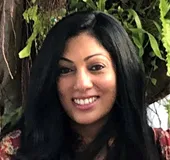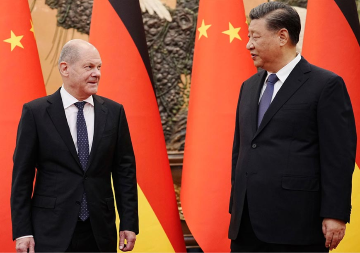
Seychelles—an archipelago of 115 islands, with a population of 98,000—due to its high dependence on the tourism industry, has been keen to quickly vaccinate its population and get its economy up and running. It managed to do this in an ostensible manner, having fully vaccinated 64 percent of its population, i.e., those that received two doses of the vaccine, while 70 percent of its population have received one dose. In effect, this amounts to 100 percent as Seychelles had calculated; in order to achieve herd immunity, its target population for the vaccine rollout was around 70,000 people.
Sudden spike
Earning itself the title of ‘Most Vaccinated Nation’, Seychelles reopened its islands to tourists on 25 March 2021 and eagerly welcomed visitors arriving from the UAE, Israel, and Russia. However, in early May, Seychelles began experiencing a somewhat perplexing surge in cases. In an interview with CNN, President Wavel Ramakalawan explained, “Around the 8th of May, we saw a spike in number of cases, this got many people asking questions including the WHO.”
Following this surge, the Foreign, Commonwealth & Development Office (FCDO) of the UK government, advised against all but essential travel to the whole of Seychelles based on the current assessment of COVID-19. The EU advised its citizens along similar lines. The US, following the Centre for Disease Control and Prevention (CDC) issuing a ‘Level 4: Do not Travel’ Health Notice, has advised its citizens against travel to Seychelles.
No deaths among the fully vaccinated
President Ramkalawan, however, has pointed out that the majority of people who were contracting the virus had not been vaccinated; and those that had been fully vaccinated were found to be largely asymptomatic. What further struck him as significant was, as he explained, “Up to now we haven’t had a single death of anyone who has had the two doses”.
His remarks came amidst several questions being raised about the efficacy of China’s Sinopharm vaccine, especially in the Western media. An article in the New York Times had reported, “Now, scientists are warning that developing nations that choose to use the Chinese vaccines, with their relatively weaker efficacy rates, could end up lagging behind countries that select vaccines made by Pfizer-BioNTech and Moderna.”
Seychelles’ vaccination roll out has been comprised of China’s Sinopharm vaccine donated by the UAE and India’s gift of Covishield, the Made-in-India Oxford-AstraZeneca vaccine. India donated 100,000 doses of Covishield, while 50,000 doses of Sinopharm were donated by the UAE. Amongst the vaccinated population that has had two doses, 57 percent was given Sinopharm, while 43 percent was given Covishield.
Seychelles’ vaccination roll out has been comprised of China’s Sinopharm vaccine donated by the UAE and India’s gift of Covishield, the Made-in-India Oxford-AstraZeneca vaccine. India donated 100,000 doses of Covishield, while 50,000 doses of Sinopharm were donated by the UAE. Amongst the vaccinated population that has had two doses, 57 percent was given Sinopharm, while 43 percent was given Covishield.
Western media brouhaha
Ian Bremmer’s (President, Eurasia Group) tweet on 10 May 2021 captures the concerns raised against the Sinopharm vaccine in the Western Media: “Seychelles is most vaccinated country in the world... but right now has more COVID cases per capita than India (!). How is that possible? Most vaccines used are Sinopharm. Which significantly reduces serious illness/death...but doesn’t do much to reduce transmission.”
In essence, President Ramkalawan’s position is not dissimilar to this. However, he points to the fact that there were no deaths amongst those that had been fully vaccinated. Speaking to Seychelles Agency News (SNA), Ramkalawan said, “People may be infected, but they are not sick. Only a small number are. Isn’t this how the vaccine is supposed to help us. So, what is happening is normal.”
President Ramkalawan points to the fact that there were no deaths amongst those that had been fully vaccinated. Speaking to Seychelles Agency News (SNA), Ramkalawan said, “People may be infected, but they are not sick. Only a small number are. Isn’t this how the vaccine is supposed to help us. So, what is happening is normal.”
According to the Health Ministry, of the people who needed hospitalisation, 80 percent had not been vaccinated and tended to be people with co-morbidities. For Ramkalawan, this showed the vaccine has worked. “The efficacy of the Sinopharm vaccine is perfect. It has saved the Seychelles. If the Sinopharm vaccine was not effective, then we would have had deaths, we would have had more people being hospitalised,” Ramkalawan remarked.
Vaccine politics: The West versus China
President Ramkalawan dismissed questions about the efficacy of Sinopharm and its relation to the surge in cases. He pointed out that he himself had taken the Sinopharm vaccine, adding that he was, in fact, the first African leader to take Sinopharm while also being the first person in Seychelles to receive it. He dismissed these rumours as vaccine politics: “The West versus China and the usual politics.” Ramkalawan also specified that after having taken the Sinopharm vaccine, he took an anti-body test, the result of which showed his antibodies “were very high”.
As yet, there are no definitive explanations for the sudden rise in cases. The WHO has said it will need to evaluate the situation, looking closely at the severity of the cases as well as the strain of the virus. The Health Ministry has pointed out that cases rose right after Easter celebrations and that those who were fully vaccinated were lax and took fewer precautions.
Does vaccine choice matter?
President Ramkalawan remains vociferous in stating that, “the two vaccines, Sinopharm and Covidshield AstraZeneca have served our population very well.” Seychelles is also reported to soon receive Russia’s Sputnik V and Pfizer vaccines as part of the African Union countries to whom President Biden has promised 500 million vaccines.
As Seychelles makes its way out of this crisis, it remains important for it, as well as the rest of the world, to go beyond mere vaccine politics, and get a genuine grasp and understanding of vaccine efficacy, mainly to answer the ever-confusing question of: Does vaccine choice matter? And if so, how does it matter and for whom? What are the long-term consequences of vaccine choice and its relationship to the particular challenges of individual countries? For small and developing island nations that are facing their harshest struggles on the economic front as global tourism trends dither precariously, these questions need to be urgently and better understood.
The views expressed above belong to the author(s). ORF research and analyses now available on Telegram! Click here to access our curated content — blogs, longforms and interviews.




 PREV
PREV


